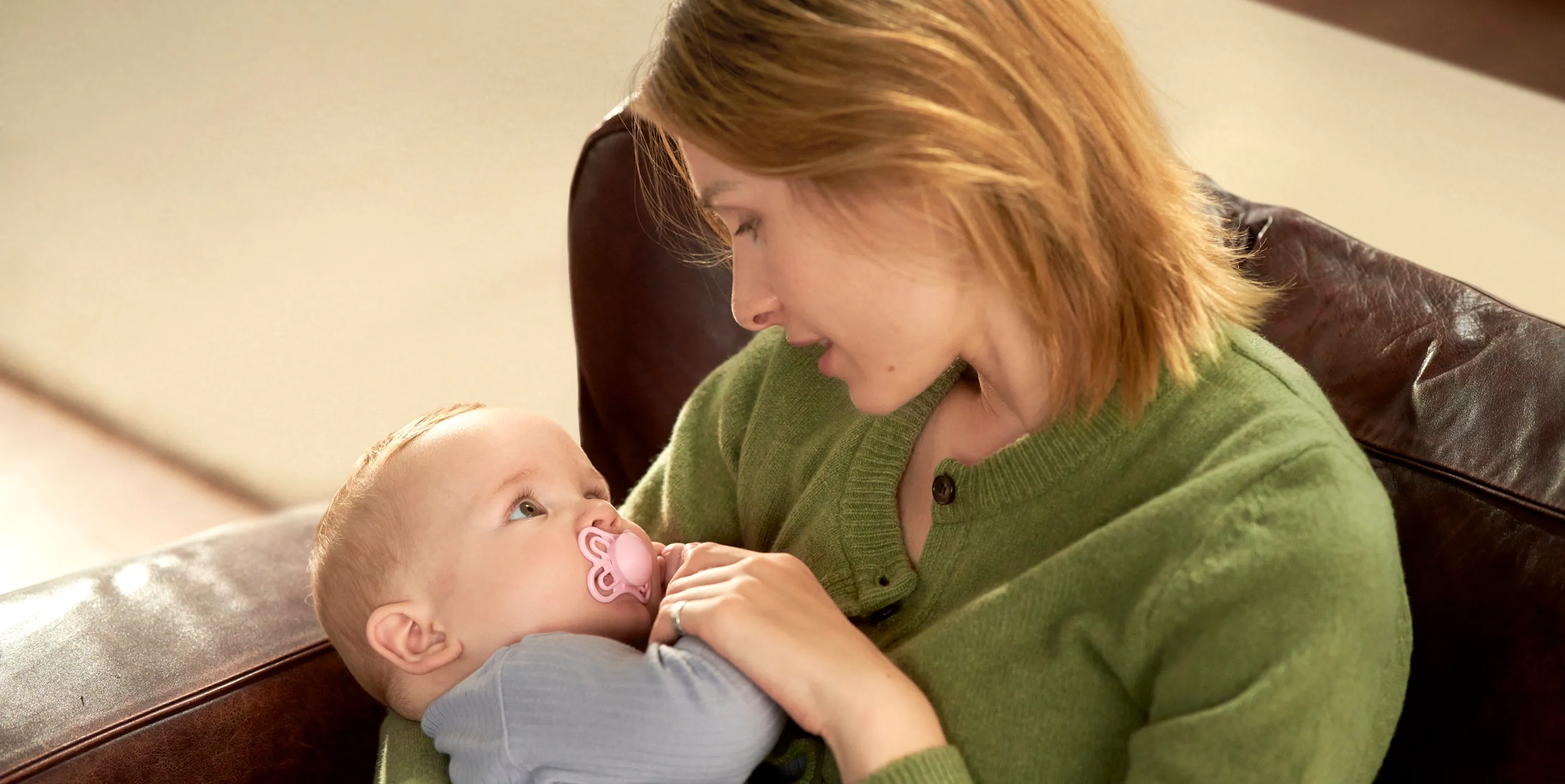
A Parental Balancing Act:
Navigating Push-and-Pull of Caregiving and Self-Care
By Elizabeth Baron, Licensed Mental Health Counselor (LMHC)
When parents welcome a child, it shifts their world in countless ways — some obvious, others subtle. Parenthood isn’t just about nurturing a child; it’s also about discovering a new version of yourself and navigating the push-and-pull that emerges with your evolving parental identity.
Especially in the early years, many parents experience emotional ambivalence. They want to soak in every moment, yet they also crave space.
“I don’t want to miss a thing, but I also need a break.”
“I love my child deeply, but I’m tired of meeting every need.”
“I need more ‘me time’ — does that make me a bad parent?”
As a perinatal psychotherapist, I hear about this inner conflict every day. It’s often rooted in postpartum challenges and the emotional demands of caregiving. One minute, a parent is savoring the feeling of their baby asleep on their chest; the next, they’re desperate for solitude and freedom from parental responsibilities. They want to feel connected to their partner, but they also feel completely depleted and “touched out.”
This ambivalence doesn’t mean something is wrong. It’s actually a healthy reflection of the complexity of parenting. Wanting to be present and also needing space is not a contradiction — it’s reality.
Dealing with these conflicting feelings can be difficult. Here are some ways to help navigate ambivalence with less shame and more confidence.
1. Normalize the Feelings
Ambivalence doesn’t make you ungrateful — it makes you human. Feeling conflicting emotions is normal and expected.
Try this simple language shift: Instead of saying “I don’t want to miss a thing, but I also need a break,” say “I don’t want to miss a thing, and I also need a break.” That one word — “and” — holds space for both realities to be true. You can love your baby deeply and need rest. You can feel grateful and overwhelmed.
This reframing helps ease guilt and encourages parents to embrace the full complexity of their experience. Emotionally resilient parenting means accepting that contradictory feelings often walk hand in hand — and that’s not just okay, it’s real
2. Prioritize Micro Self-Care
Needing time for yourself doesn’t make you a bad parent. It helps you show up with more patience, energy, and love. Even 10 minutes of deep breathing, a walk, or a quiet cup of coffee can help.
3. Communicate and Ask for Support
Talk to your partner or a trusted friend. Say what you need. Reaching out isn’t a weakness — it’s a strength.
4. Slow down
When you’re pulled in different directions, practice taking a pause and talking out loud to your baby. “One minute, sweetie. Mommy’s here and I’ll be right over with a bottle after I go to the bathroom.” Or, “I love you, and I’m putting you on the play mat for a minute while I grab a snack.” By slowing down and verbalizing what you’re doing in the moment, you’re acknowledging their needs and your own.
I want parents to know this, especially if they experience parental guilt about taking time for themselves: Self-care isn’t selfish; it’s self-sustaining. Whenever you feel conflicted, know that you are not alone, and you are not a bad parent. Find the time and space to recharge, and ask for help if you need it. Balancing parenting and mental health is not only valid—it’s vital.
